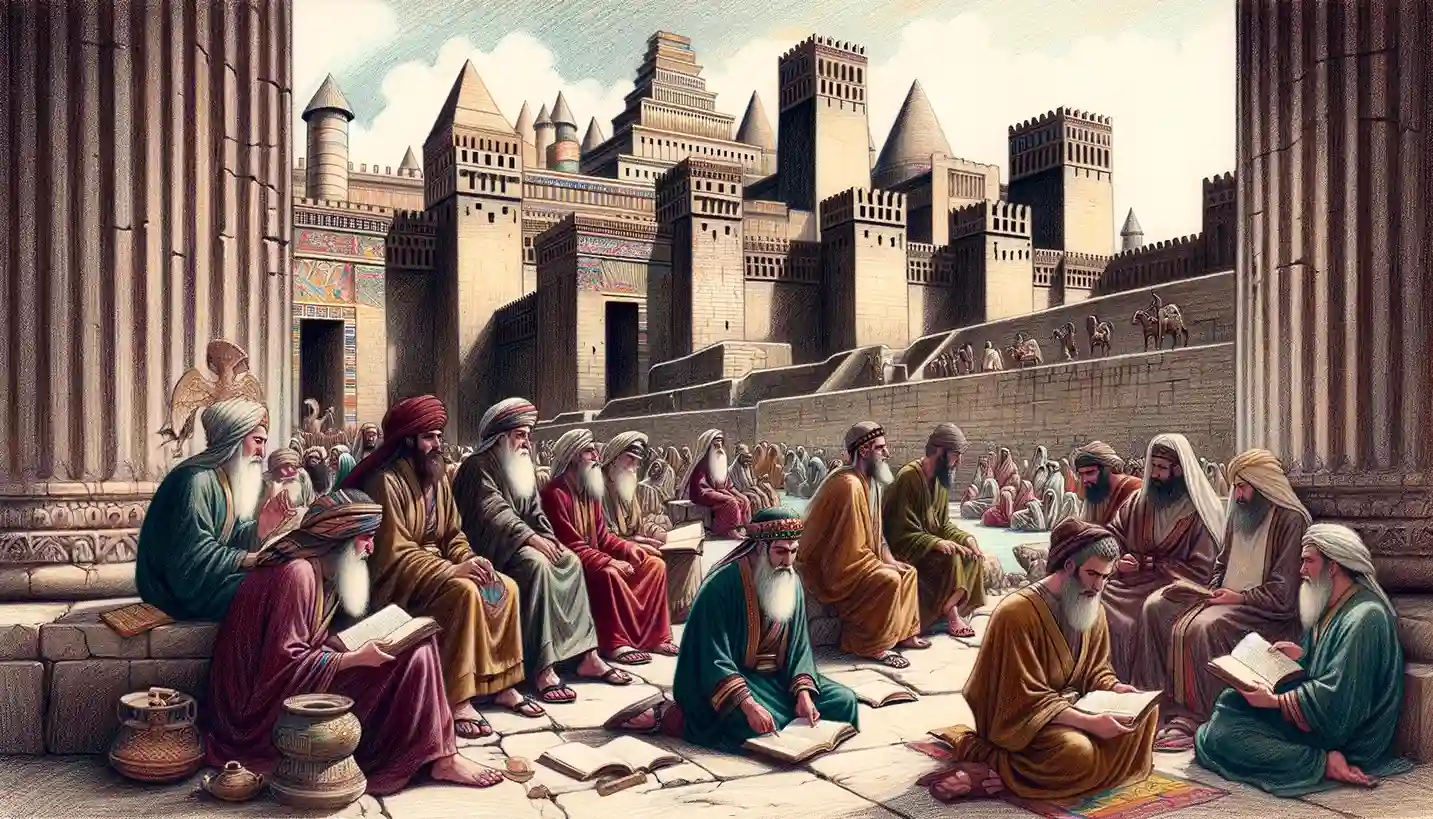
Babylon: Jewish Exile Location
Babylon is a historically significant city in ancient Mesopotamia, renowned as the location of the Jewish exile. This period of exile, also known as the Babylonian Captivity, was a pivotal event in Jewish history, profoundly influencing the Jewish people and their religious practices. The exile marks a time of immense hardship and transformation, leading to significant developments in Jewish theology and culture.
Quick Facts:
- Location: Babylon was located in ancient Mesopotamia, near modern-day Baghdad, Iraq.
- Historical Significance: It is best known for the Babylonian Exile, when the Jews were taken captive by King Nebuchadnezzar II.
- Timeline: The Babylonian Exile occurred from 586 BCE, following the destruction of the First Temple, until 538 BCE, when Cyrus the Great allowed the Jews to return to Jerusalem.
- Cultural Impact: The exile led to significant developments in Jewish religious thought, including the compilation of important biblical texts.
- Prophetic Voices: Prominent prophets such as Jeremiah, Ezekiel, and Daniel lived during this period, providing guidance and hope to the exiled community.
Babylon holds a prominent place in both historical and biblical narratives. Located near modern-day Baghdad, Iraq, Babylon was a major city in ancient Mesopotamia, known for its impressive architecture, including the famed Hanging Gardens, one of the Seven Wonders of the Ancient World.
Historical Context: The Babylonian Exile, or Babylonian Captivity, was a period of significant upheaval for the Jewish people. In 586 BCE, King Nebuchadnezzar II of Babylon besieged Jerusalem, destroyed the First Temple, and deported a large portion of the Jewish population to Babylon. This event marked the beginning of a 70-year period of exile.
Life in Exile: In Babylon, the Jewish exiles faced the challenge of maintaining their identity and faith in a foreign land. The exile was a time of significant religious and cultural development. Without the Temple, Jewish worship shifted towards practices that could be carried out in exile, such as prayer, fasting, and the study of the Torah. This period also saw the rise of synagogues as centers for communal worship and learning.
Prophetic Voices: Several key prophets emerged during the Babylonian Exile, offering guidance, hope, and critique to the Jewish people. Jeremiah, who prophesied the exile, encouraged the exiles to seek the welfare of the city where they were living (Jeremiah 29:4-7). Ezekiel, prophesying in Babylon, had visions of the restoration of Israel and the return of God’s presence to a new Temple (Ezekiel 40-48). Daniel, living in the Babylonian court, remained faithful to God amidst pagan influences and received apocalyptic visions concerning the future of Israel and the coming of the Messiah (Daniel 7-12).
Theological Developments: The exile profoundly influenced Jewish theology. It was a period of reflection on the reasons for the exile, leading to a renewed emphasis on covenant fidelity and obedience to God’s laws. The compilation and editing of significant portions of the Hebrew Bible likely took place during and after the exile, including historical books, prophetic writings, and wisdom literature. Themes of judgment, repentance, and restoration became central to Jewish thought.
End of the Exile: In 538 BCE, Cyrus the Great of Persia conquered Babylon and issued a decree allowing the Jews to return to Jerusalem and rebuild the Temple. This return marked the beginning of the Second Temple period. The experience of exile and return had a lasting impact on Jewish identity, reinforcing the importance of faith, community, and adherence to God’s commandments.
Modern-Day Significance: The Babylonian Exile remains a foundational event in Jewish history, shaping the religious and cultural identity of the Jewish people. It is a period remembered for its trials and tribulations but also for its profound contributions to Jewish thought and scripture. The lessons of resilience, faith, and hope from the exile continue to resonate in Jewish tradition and beyond.
Babylon, as the site of the Jewish exile, stands as a testament to a critical chapter in the history of Judaism. Its legacy is reflected in the enduring faith and cultural heritage of the Jewish people, underscoring the transformative power of adversity and the enduring hope for restoration and renewal.



